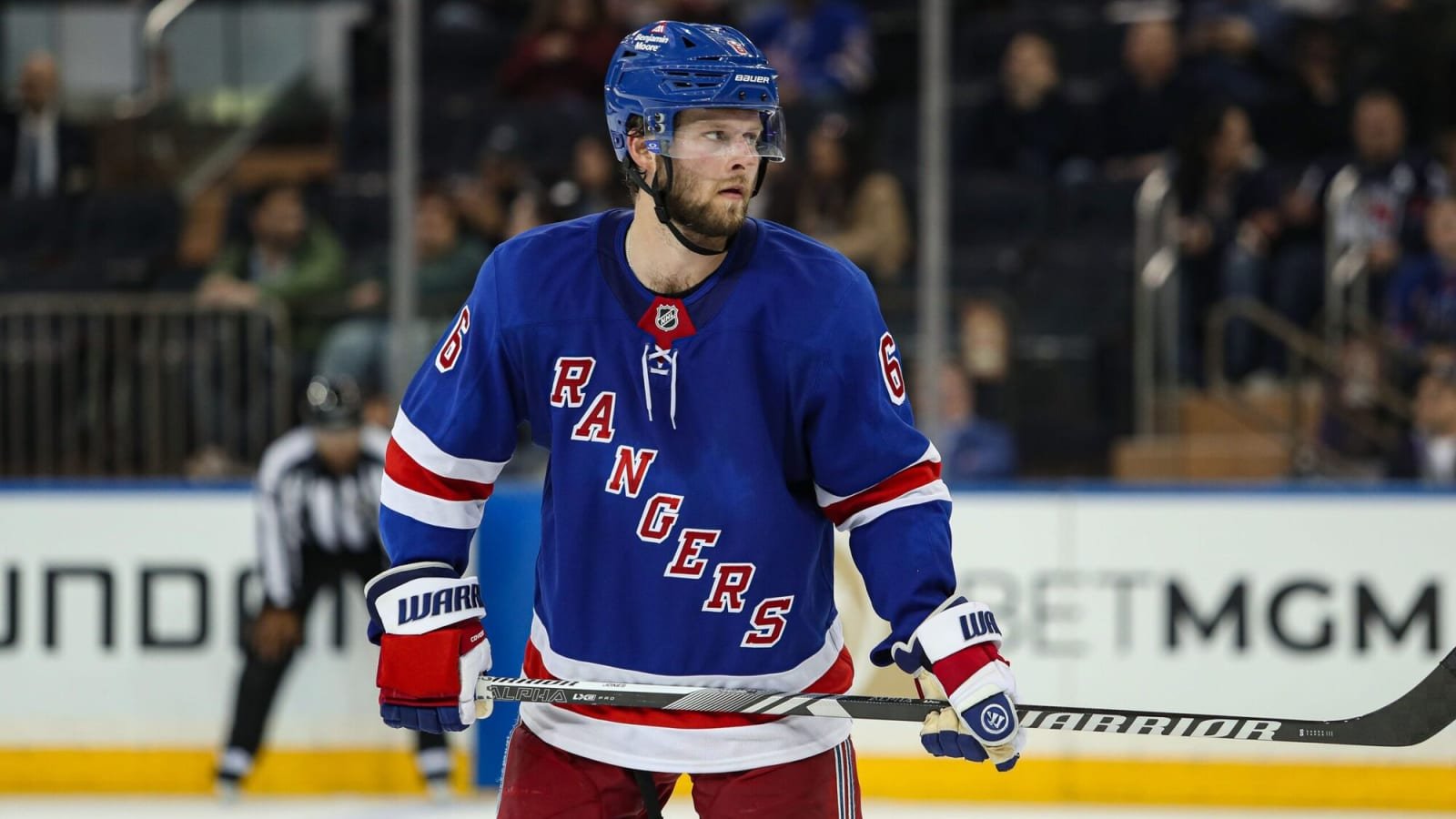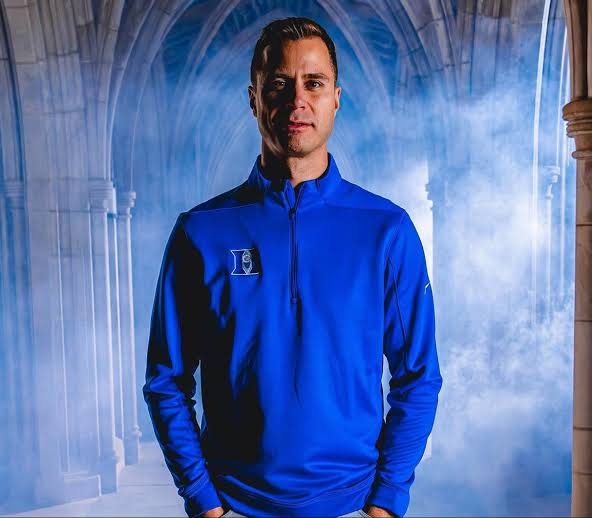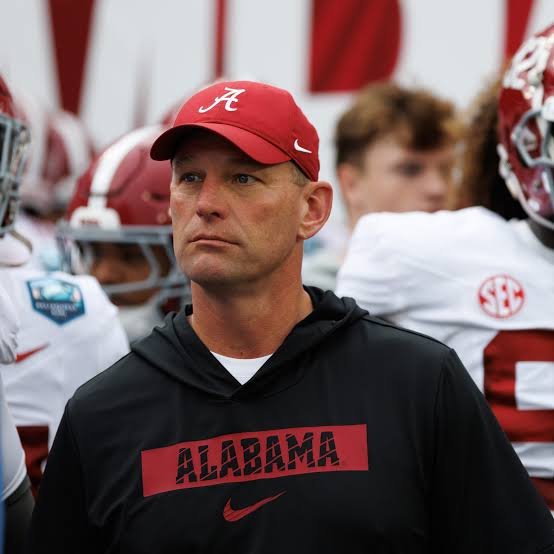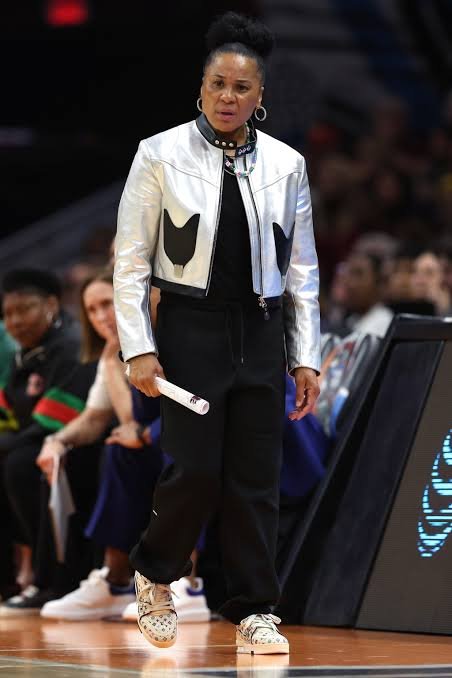“‘I’m a Ghost in the Locker Room!’: Zac Jones’ Dramatic Plea Highlights Rangers’ Player Turmoil”
“I’m a Ghost in the Locker Room!”: Zac Jones’ Dramatic Plea Highlights Rangers’ Player Turmoil
In a surprising turn of events in the NHL, New York Rangers defenseman Zac Jones has sent shockwaves through the hockey community with a candid and emotional statement regarding his recent struggles on the team. During a post-game interview, Jones revealed, “I’m a ghost in the locker room! I feel like I’m rotting away. It f— sucks!” His raw confession has sparked conversations about the pressures young athletes face in professional sports and the sense of isolation that can accompany sitting on the bench.
### The Rising Star
Zac Jones, a promising young defenseman drafted in the third round of the 2019 NHL Draft, has shown flashes of brilliance since joining the Rangers. Known for his speed, puck-moving ability, and offensive instincts, Jones has long been viewed as a critical piece of the team’s future. However, this season has been particularly difficult for him, as he has found himself frequently scratched from the lineup.
Despite his potential, Jones has struggled to find consistent playing time, a situation that has left him frustrated and questioning his role within the organization. “I know I have the skills, and I can compete at this level. But when you’re not playing, it’s hard to prove yourself,” he stated during the emotionally charged press conference.
### The Impact of Scratches
Jones’s struggle is a familiar narrative for many young players in the NHL, particularly in high-pressure environments like New York. Scratches can have a profound emotional and psychological impact on athletes, leading to feelings of inadequacy, anxiety, and isolation. “When you’re not part of the game, it can feel like you’re just a phantom. You’re there but not really there—just a ghost in the locker room,” Jones added, highlighting the emotional toll he has experienced.
The effects are not limited to the player alone; they can also ripple through the team dynamic. With the atmosphere in the locker room potentially impacted by the team’s treatment of young talent, the Rangers’ coaching staff may need to evaluate their approach to player development and support to ensure that such feelings do not fester.
### A Deep Dive into the Team’s Culture
The Rangers organization has a long history of both supporting and scrutinizing their players, but their treatment of young players has come under increased scrutiny in recent years. With a fan base passionate about winning and expectations high, the pressure can be overwhelming.
Jones’s comments have reignited discussions about the mental health of NHL players, particularly the importance of fostering an environment that prioritizes both performance and emotional wellbeing. Former NHL player and mental health advocate, Kevin Bieksa, weighed in, stating, “We need to create a culture where younger players feel safe to express their feelings and know that they have support. Zac’s words are a reminder that, behind the physical toughness, there are real emotional battles being fought.”
### Fan Reactions and Media Frenzy
As news of Jones’s comments spread, the hockey community erupted into discussions and debates. Social media platforms were flooded with opinions, both supportive and critical, of his frank expression of frustration. Many fans showed solidarity, expressing sentiments such as, “Zac, we believe in you! Keep fighting!” while others took a more skeptical view, questioning whether airing such grievances publicly was the right move for a professional athlete.
Sports analysts were quick to dissect the implications of Jones’s sentiments, speculating on how they might affect his relationship with coaches and teammates. “On one hand, it’s brave for him to speak out. But on the other, it might come back to haunt him,” said analyst Linda Cohen during a segment on a major sports network.
In contrast, some long-time fans recalled similar struggles faced by Rangers players in the past, noting that the organization has often been criticized for its handling of young talent. “This isn’t the first time we’ve seen this happen,” one long-time fan tweeted. “It’s part of a long-standing issue in the Rangers’ culture. They need to do better.”
### The Response from Coaches and Management
In response to Jones’s public statements, Rangers head coach Gerard Gallant acknowledged the team needed to create an environment where players felt valued, regardless of ice time. “We all want to win, but we also have to make sure our younger players know they are an essential part of this organization and its future. We’ll talk to Zac and work through this as a team,” he commented in a press conference following the outcry.
Additionally, General Manager Chris Drury issued a statement emphasizing the organization’s commitment to player development. “Zac is a talented player who has a bright future ahead of him. We recognize the challenges young athletes face and are committed to ensuring they receive the support they need, both on and off the ice.”
### The Larger Conversation on Mental Health in Sports
Jones’s plea has opened the door for broader discussions regarding mental health in sports. While conversations about athlete mental health have gained traction in recent years, instances like this serve as crucial reminders of the work still needed to support players effectively. Many organizations are beginning to hire mental health professionals and implement programs tailored to address the unique challenges athletes face, yet these measures remain inconsistent across the league.
Hockey is often seen as a particularly tough sport, where players are expected to portray a tough exterior. Breaking through these stereotypes is essential in creating a supportive atmosphere. “It’s important for players to feel comfortable expressing their feelings, whether it’s about physical performance or mental health,” said Dr. Lisa Kauffman, a sports psychologist who works with professional athletes.
### Looking Ahead
As the NHL season progresses, all eyes will be on Zac Jones and the New York Rangers. His expression of frustration not only highlights his individual struggles but also brings to light systemic issues within the organization that need to be addressed. How the Rangers respond to Jones’s comments and the subsequent discussions will play a significant role in shaping their team culture moving forward.
For Jones, the road ahead will require resilience, but also a robust support system that understands the complexities of being a young player in a highly scrutinized environment. As he navigates these challenges, both on and off the ice, the hope is that his candid plea will foster necessary conversations and improvements within the organization, ultimately leading to a healthier environment for all players.
In conclusion, Zac Jones’s heartfelt admission about feeling like a ghost in the locker room has resonated deeply in the world of professional hockey. It symbolizes the struggles many young players face while trying to find their place in a high-pressure environment. As the conversation surrounding player well-being continues, it is crucial for organizations like the New York Rangers to heed these words as they strive to create a supportive atmosphere where athletes can thrive both personally and professionally.




Post Comment